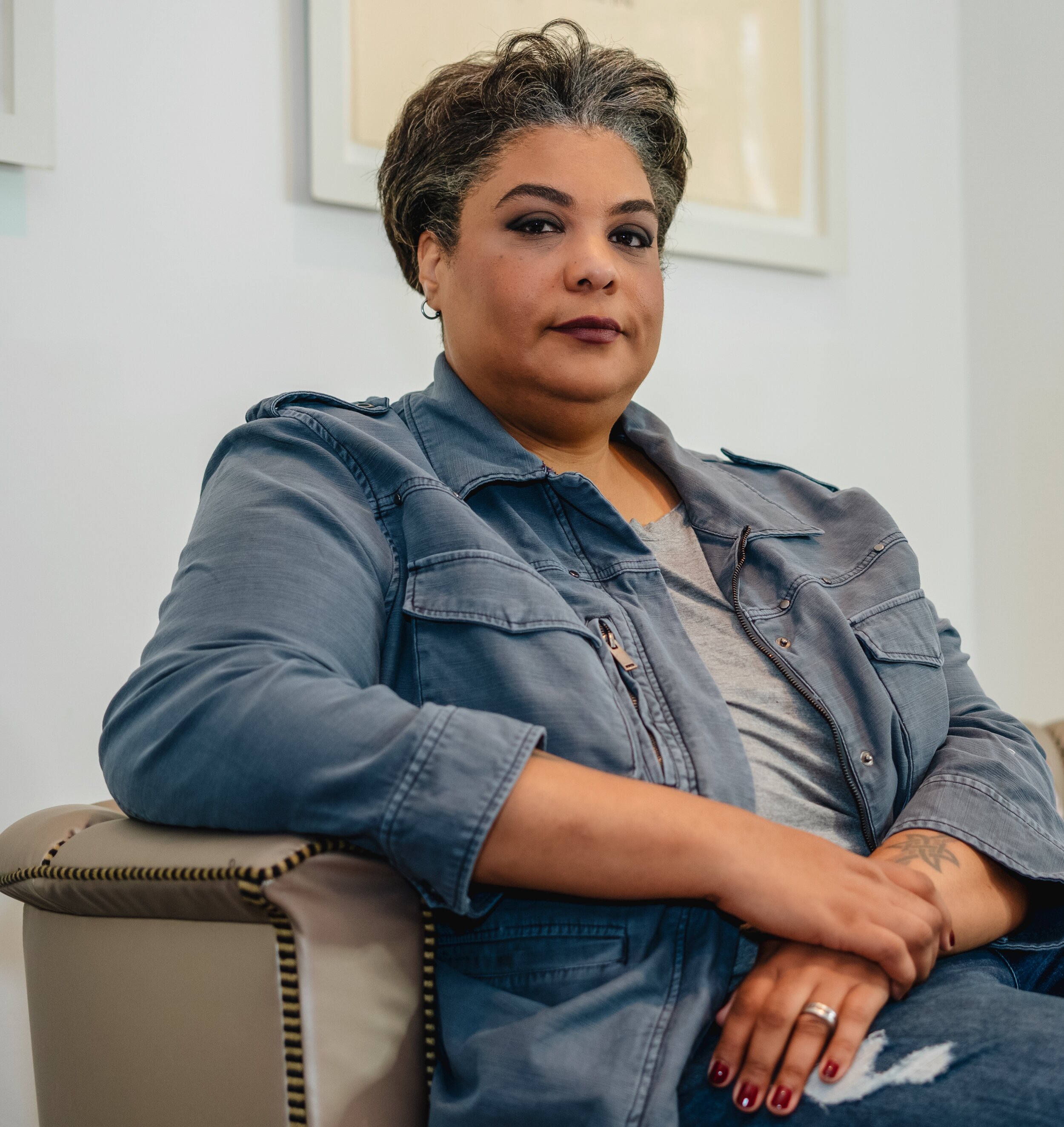Provocative bestselling author. Prestigious editor. Prolific book reviewer. Passionate press founder. Prominent professor. Powerful speaker. Perceptive social commentator.
Phew!
Is it any wonder Roxane Gay has been dubbed by Playboy as the most important and most accessible feminist critic of our time?
Over 1,000,000 people follow Roxane across Twitter, Instagram, and GoodReads, where she is, no big deal, currently the #1 ranked best book reviewer on the entire platform. So she’s an Internet junkie then, right? One of those social media “influencer” people? That kind of thing?
Oh no, no, no, no, no! Roxane Gay is not that. She writes the Work Friend column at The New York Times as well as regular Op-Eds. She is the author of numerous bestselling books including Ayiti, Bad Feminist, An Untamed State, Difficult Women and Hunger. She was an editor for The Rumpus, co founded PANK literary magazine, and is currently editor at Gay Mag. She launched Tiny Hardcore Press (in her words, publishing “books tiny in stature but grand in reach and spirit,”) and has been a professor at Eastern Illinois, Purdue, and Yale.
Roxane’s work is known for challenging mainstream narratives and deconstructing feminist and cultural issues through the lens of her personal experience as a Black queer writer. I spent weeks preparing for this conversation and felt like a ravenous wolf trying to read and listen to as much Roxane as I could find. I read and loved Bad Feminist, dug into her treasure trove of essays on Medium, and listened to her on many podcasts including two episodes on the wonderful Design Matters with her wife Debbie Millman. And still: I didn’t scratch the surface. She is such a prolific voice.
We talk relationships, love, morality, sex, and, of course, her three most formative books. Are you ready to hang out with Roxane’s incredibly compelling mind?
Let’s go!
PS. This chapter is in partnership with Roxane and Performance Space NY, an alternative arts hub currently raising funds for housing insecure Black and trans artists. The arts world needs us all the time but even more so during this pandemic. Please consider donating. I will match all 3 Books listener donations up to $5000. Please email Manuela at manuela@globalhappiness.org with your donation receipt. Thank you!
What You'll Learn:
How do you navigate the TBR (to be read) pile?
What are the ingredients for finding love?
What does it mean to be loved well?
What is cultural relativism?
What is the true power of a book?
How do we teach kids about sex these days?
Why is it so destructive to associate sex with shame?
How do we stop caring about what other people think?
How do we become better writers?
Notable quotes from Roxane Gay:
“There isn’t any nobility in settling.” - @rgay #3bookspodcast
“Being unlikable is not unacceptable.” - @rgay #3bookspodcast
CONNECT WITH Roxane:
Word of the chapter:
Resources Mentioned:
Roxane’s first book [10:25]
Roxane’s second book [18:25]
Roxane’s third book [23:18]
Little House on the Prairie Book Series by Laura Ingalls Wilder
What We Hunger For by Roxane Gay
Not Here To Make Friends by Roxane Gay
Enjoy the show? Use the Links Below to Subscribe:








